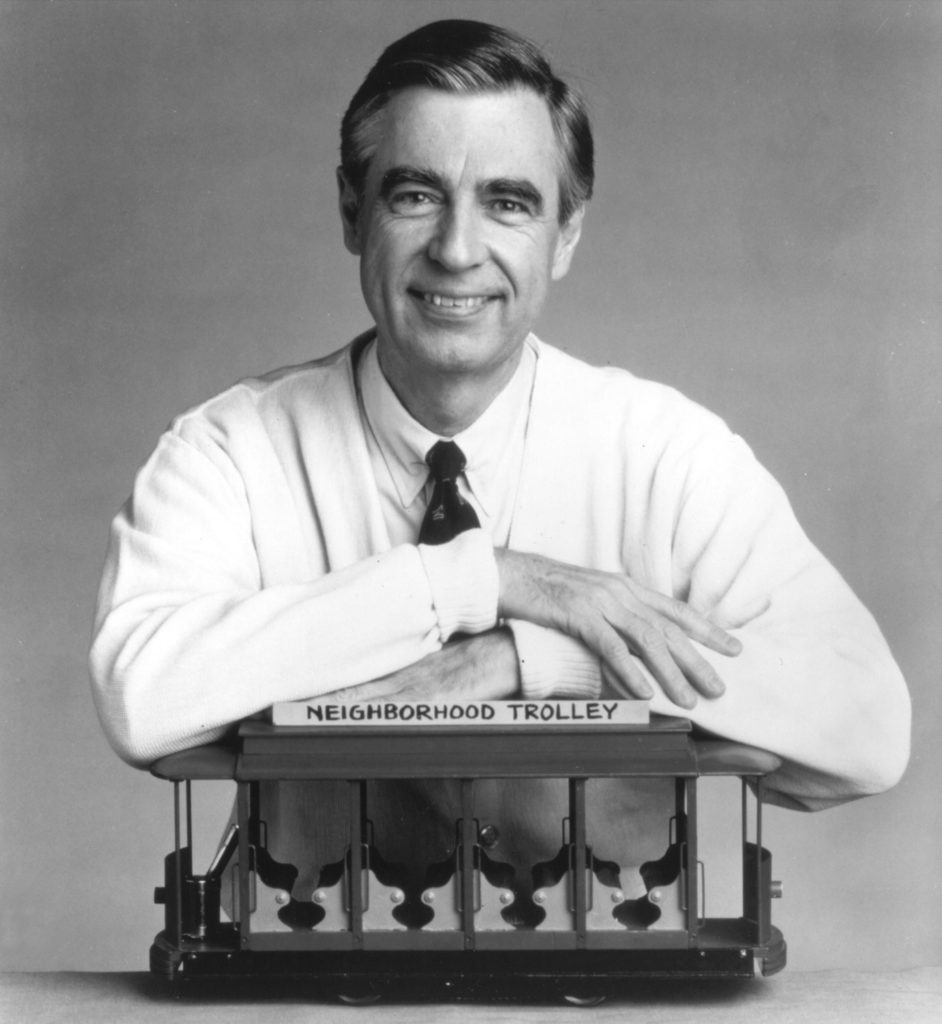
In May of 1997, Fred Rogers opened his commencement address at Memphis Theological Seminary by describing a piece of calligraphy he kept in his office—a quotation from The Little Price by Antoine de Saint-Exupéry: “What is essential is invisible to the eye.”
“Those may seem like strange words to have in the office of a person who makes television programs,”Rogers said, “but I find the truth of those words growing deeper within me every day.”
It had been forty years since Rogers had taken his lunch break to talk with admissions officer sat Western Theological Seminary in Pittsburgh. “When I said I could only come for one course at a time because of my television work schedule, they miraculously agreed to allow me to study there.”
“For the next eight years, for three or four days a week, I would leave the frantic life of television production and drive to the seminary.” Rogers was fascinated by one professor in particular, William Orr, “who not only taught Christian theology, he lived it.”
In Orr’s classes, Rogers said, “We witnessed the unfolding of the life of one of God’s saints.” Rogers recounted seeing his professor leave for lunch on a winter’s day and return without his coat; he’d given it to someone who was cold.
Rogers wanted to know more about what compelled his professor to treat people the way he did. “Yes, I wanted to know what was essential about him,” Rogers said. “And through all those years, what I discovered, was that William Orr took Jesus of Nazareth seriously.”
In the last years of his life, Orr suffered a stroke. Rogers recalled sitting beside Orr’s hospital bed, talking about the nature of evil. “You know, Fred, there’s only one thing that evil cannot stand, and that is forgiveness.”
Rogers quoted his professor as saying, “Evil will do anything to make you feel as bad as you possibly can about yourself. Because if you feel the worst about who you are, you will undoubtedly look with evil eyes on your neighbor and will get to believe the worst about him or her.
Rogers said that Jesus, by contrast, “is our advocate. He will do anything to encourage us to know that God’s creation is good. That we—his brothers and sisters—can look on each other as having real value. Our advocate will do anything to remind us that we are loveable and that our neighbor is loveable too.”
Rogers closed by addressing MTS directly, saying, “For many years, this school has been helping people to become advocates for the most essential good news in all of history—the news that, in the mind and the heart of the eternal, we human beings have value. That we are partners with God in forgiveness, and the space between any two of us is holy ground.
May this theological seminary, here in Memphis, continue to announce to the world that it’s never too late to embrace the one who loves us and who loves what is absolutely essential about us—that our advocate, Jesus the Christ, accepts us exactly as we are, invisible to the eye, and invites us to grow along with him forever.”
